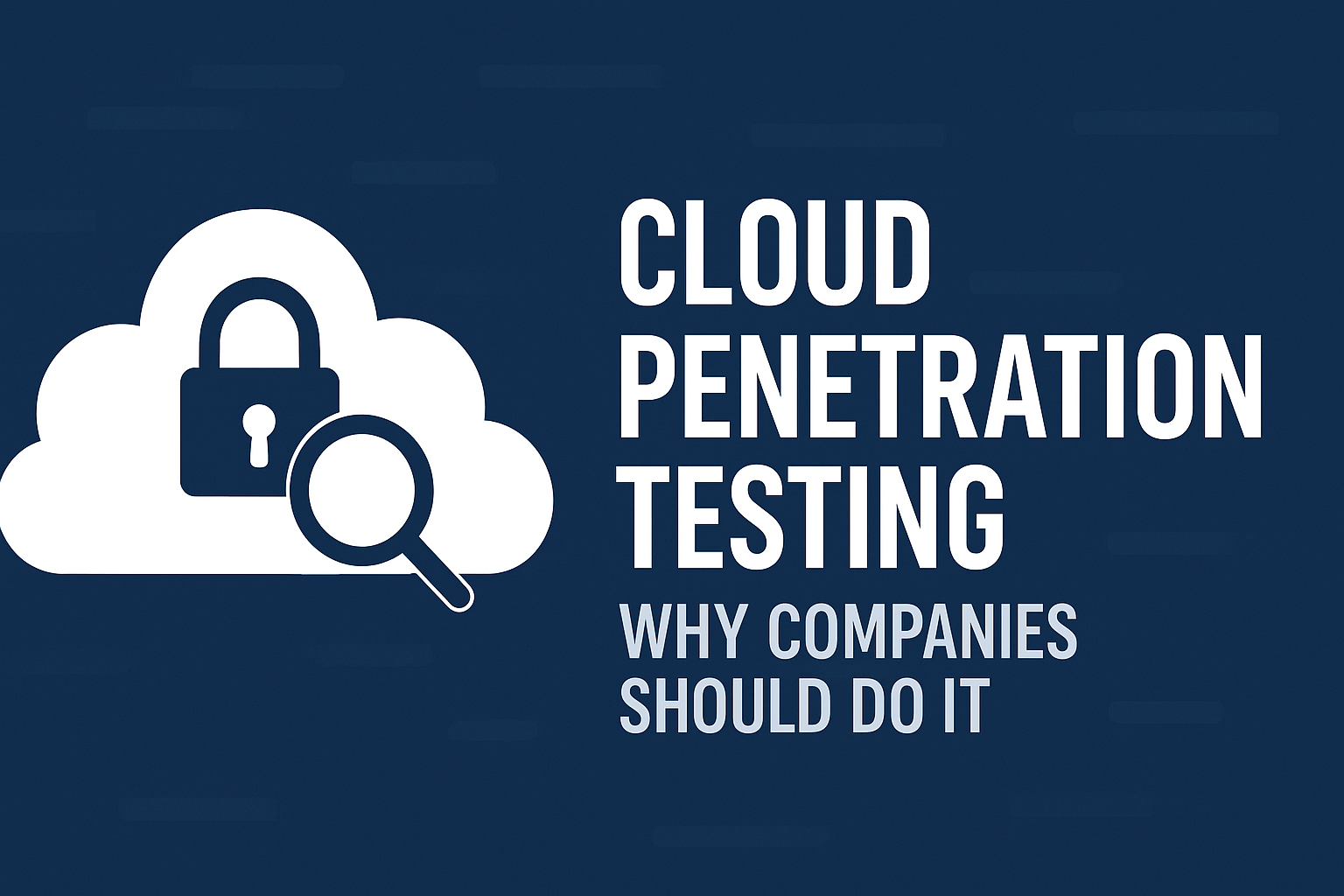Cloud Penetration Testing: Why Companies Should Do It
In today’s digital era, most businesses rely on cloud platforms like AWS, Azure, and Google Cloud to store data, run applications, and scale their operations. While the cloud brings flexibility and efficiency, it also increases exposure to cyber threats. This is where Cloud Penetration Testing becomes crucial. It helps companies identify vulnerabilities before attackers exploit them. With security breaches rising every year, no organization—small or large—can ignore the importance of regular cloud penetration testing.
What Is Cloud Penetration Testing?
Cloud Penetration Testing is a controlled ethical hacking process where security experts simulate real-world cyberattacks on cloud environments. The goal is to uncover weaknesses in infrastructure, configurations, access controls, APIs, and cloud-based applications. Unlike traditional penetration testing, cloud testing involves additional layers such as shared responsibility models, virtualized components, and cloud-specific services.
This evaluation helps companies understand how secure their cloud architecture is and what corrective actions they should take to strengthen protection.
Why Companies Should Conduct Cloud Penetration Testing
1. Identifies Hidden Vulnerabilities
Cloud systems are complex. Misconfigured storage buckets, open ports, overly permissive IAM roles, and weak API endpoints are common vulnerabilities. Cloud Penetration Testing exposes these weaknesses early so security teams can fix them before hackers find them.
2. Protects Sensitive Data
Most businesses today store sensitive information—customer data, business documents, financial reports—in the cloud. A single breach can lead to massive financial loss, brand damage, and legal issues. Pen testing ensures data remains secure by validating encryption practices, access policies, and identity management structures.
3. Ensures Compliance
Industries like finance, healthcare, and e-commerce must meet strict compliance standards such as GDPR, HIPAA, PCI DSS, ISO 27001, and more. Regular cloud penetration tests help companies meet regulatory requirements and avoid penalties. Reports from ethical hackers also serve as strong documentation during audits.
4. Validates the Effectiveness of Security Controls
Firewalls, WAFs, IAM policies, multi-factor authentication, and other cloud security measures may not work as expected if incorrectly configured. Penetration testing verifies whether these controls actually protect workloads during simulated attacks.
5. Strengthens Incident Response
By simulating various attack scenarios, companies learn how well their teams respond to intrusions. It highlights gaps in monitoring, alerting, and response workflows. This leads to improved processes and quicker reaction times during real cyber incidents.
6. Supports Continuous Cloud Security
Cloud environments change frequently due to new deployments, scaling, and updates. Each change brings new potential vulnerabilities. Cloud Penetration Testing supports continuous security by ensuring that new configurations do not introduce new risks.
How Cloud Penetration Testing Works
The cloud testing process typically includes:
-
Planning & Scope Definition
Understanding which cloud assets and services require testing. -
Reconnaissance
Gathering data about the cloud architecture and potential entry points. -
Vulnerability Analysis
Identifying weaknesses in the cloud environment. -
Exploitation
Attempting to exploit vulnerabilities ethically. -
Reporting & Recommendations
Delivering a detailed report with corrective actions.
This structured approach ensures companies gain clear visibility into their cloud security posture.
Conclusion
Cloud Penetration Testing is no longer optional—it is a necessity for modern businesses that rely on cloud platforms. It helps identify vulnerabilities, secure sensitive data, ensure compliance, and improve overall security posture. As cyber threats grow more sophisticated, performing regular cloud penetration tests becomes one of the most effective ways to safeguard your digital assets and maintain customer trust. Companies that invest in cloud security now will be far better prepared for the challenges of tomorrow.






